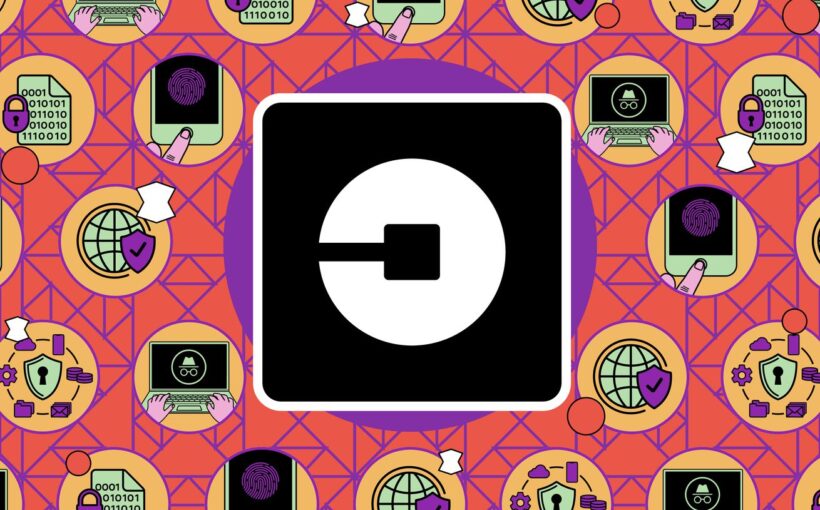
My Uber driver asked for my PIN recently. In my half-asleep state, I stared at him, alarmed, for a few seconds before it dawned on me: he was asking me to share the PIN Uber sent so I could verify my ride.
It turned out I’d activated all of Uber’s safety features while writing about Uber’s new safety customization section last month and then forgot about their existence entirely — which, to be honest, is pretty easy to do. Hidden away under Settings in the Uber app, Uber’s safety tools are less visible than all of its many services and even its Emission Savings feature (yeah, that’s a thing).
That’s a real shame because as a single female caregiver who frequently takes Ubers and has experienced harassment, I’m starting to appreciate the extra sense of safety. And given that Uber received 9,805 reports of sexual assault in its rides from 2017 to 2020, according to its most recent safety report, I think they can help a lot of people, too.
Some of these tools I knew about already, and you probably have heard about them, too, like ShareMyTrip, which lets you send live location and ride details with people you trust. But did you know you could also record your rides? The recording is encrypted, and you can’t listen to it — nor can your driver — but Uber can and will if you submit a safety report. What’s even cooler is that you can customize these features according to time and location. For example, you can schedule PIN verification or the audio recording feature to turn on for all rides after 9PM and / or whenever you’re within 50 meters of bars.
These features are not easy to find. But thankfully, Uber makes it pretty easy to turn them all on in just five steps. Here’s how:
:format(webp)/cdn.vox-cdn.com/uploads/chorus_asset/file/25414056/1a.jpg)
:format(webp)/cdn.vox-cdn.com/uploads/chorus_asset/file/25414057/2.jpeg)
:format(webp)/cdn.vox-cdn.com/uploads/chorus_asset/file/25414058/3.jpeg)
:format(webp)/cdn.vox-cdn.com/uploads/chorus_asset/file/25414059/4.jpeg)
:format(webp)/cdn.vox-cdn.com/uploads/chorus_asset/file/25414060/5.jpeg)
1/5
- First, in your Uber app, click on the Account tab located at the very bottom right of your screen.
- After selecting Settings, scroll down to the Safety section.
- Head on over to Safety preferences to start adding your safety tool preferences. (Note that some people may see and need to click on Start setup first before doing so, as I had initially.)
- You’ll then see a page with four safety features that you can choose to activate: Get more safety check-ins; Use PIN verification; Record audio; and Share trip status.
- On that same page, scroll down to Schedule. There, you can set schedules for all, some, or no rides. If you click on some rides, Uber will also let you choose between late-night rides (9PM–5AM), within 50 meters of a bar or restaurant, and / or weekends
You can also customize safety tools while on a ride when you click on the Safety Toolkit blue shield and select Set up safety preferences. Even better, Uber offers additional safety features while you’re on the ride (which are only visible when you are on said ride), like Text-to-911, which sends a prewritten text with information about the trip, vehicle, and location to 911 operators. There’s also Live Help, a feature Uber created in partnership with security company ADT that lets riders and drivers talk to safety agents via text or a call during a ride until they feel safe.
Truth be told, I wish Uber offered more safety tools and customization options. Why stop at just bars and restaurants? Why not other places, like airports, which is where one person did actually try to steal my Uber ride late at night? Or take a leaf from Lyft’s book and automatically match female / nonbinary drivers and riders more often!
I also wish some features, like audio recording, were automatically turned on by default, while features like PIN verification could be turned off manually after the fact. Busses have security cameras on all the time, after all, and I know it would have empowered me and my loved ones — male, female, and nonbinary Uber drivers and riders alike — to report harassment while on rides in the past. Heck, it would probably help deter crime from happening in the first place. Who knows — maybe automatic PIN verification could have saved Loletha Hall from being shot to death by an 81-year-old who thought she was a scammer.
But for now, I guess something is better than nothing. Hopefully, Uber will continue to work on making its rides safer. Until then, the best thing we can do is take our safety into our own hands and work within the narrow confines of Uber’s existing toolset.



